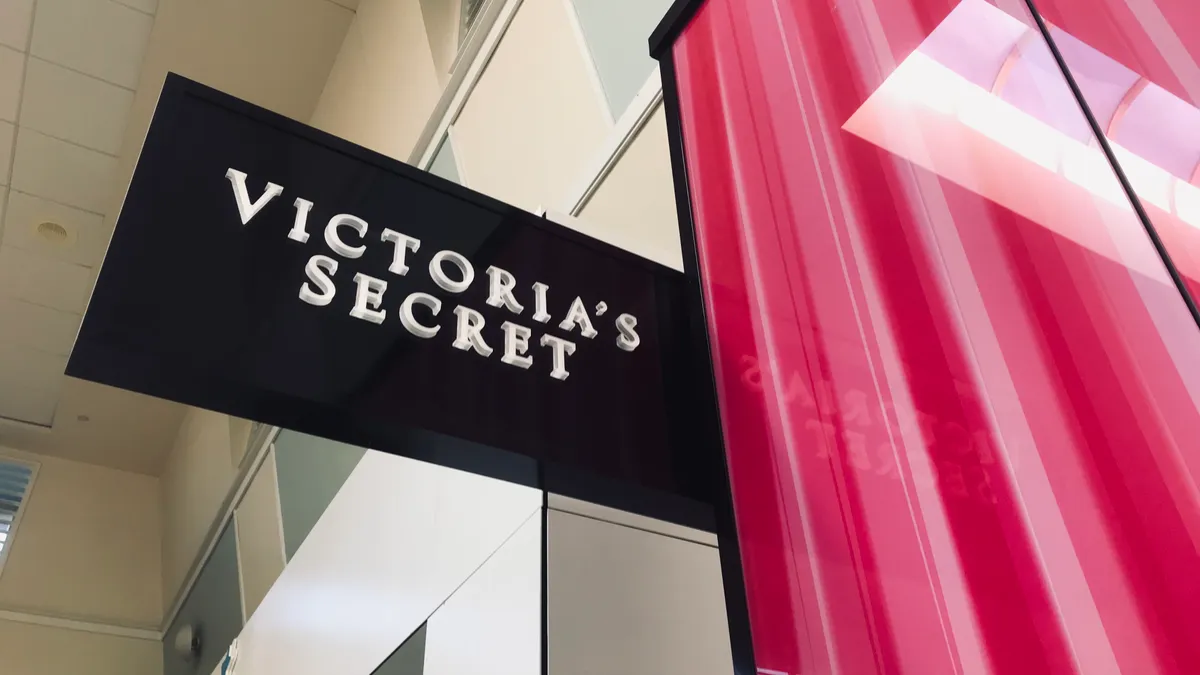Dive Brief:
- L Brands' Victoria's Secret is seeking out investors for a $500 million loan that the lingerie retailer would use to fund its split from Bath & Body Works, according to a Bloomberg report that cited an anonymous source.
- The loan would come due in 2028. Victoria's Secret is currently marketing the loan privately to investors, according to Bloomberg.
- In a document this week, Victoria's Secret said it could take out up to $1 billion in debt to fund a cash payment to L Brands as part of the separation deal.
Dive Insight:
L Brands is gaining velocity as it heads down a forked path. After flirting with and rejecting potential buyers, the company is deepening its preparations to spin off Victoria's Secret and separate two retail banners that have long been on different trajectories. L Brands this week filed plans with the Securities & Exchange Commission to spin Victoria's Secret off into its own publicly traded company, "Victoria's Secret & Co."
The company had a deal last year to sell a majority stake to private equity firm Sycamore Partners. But the deal fell apart amid COVID-19 turmoil. The latest plans call for an even cleaner break between Victoria's Secret and Bath & Body Works.
While a massive revenue generator, Victoria's Secret has been L Brands' problem child in recent years. The lingerie brand has declined with the rise of DTC and other competitors. Moreover, its marketing tradition has aged poorly in the #MeToo era.
Victoria's Secret has been trying to transform itself for years to reverse its decline. Its latest effort is the "VS Collective," a group of influential women, including sports stars and activists, that the company said will shape the brand's merchandising and messaging going forward. As it heads into corporate independence, Victoria's Secret's new board is also nearly entirely comprised of women.
In a presentation around the separation, L Brands predicts sales growth in the mid-single digits for Victoria's Secret over the next three to five years, which would be an improvement over past years of decline. It also anticipates digital penetration to reach 50% of Victoria's Secret sales. That would make the retailer, with its nearly 870 North American stores, a very different business from the mall staple it has been for the course of its life so far. In 2019, digital penetration stood at 25%.
Bath & Body Works, meanwhile, has been on a consistent growth path, thanks to a loyal base of fans, as well as a merchandising and marketing strategy that has come into its own during the Instagram age. Bath & Body Works even managed to grow its sales during the pandemic year of 2020, while so many of its mall peers suffered or merely endured.
Separating the companies, according to L Brands, will help each focus on their unique business. As for the cash payment Victoria's Secret would be making on its way out the door, the company said in its filing this week that L Brands would use the money to retire related debt and repurchase stock as part of the restructuring.
After the separation, Victoria's Secret "will have debt obligations that could restrict our business and adversely impact our results of operations, financial condition or cash flows," the company warned investors. "In addition, the separation of our business from LB may increase the overall cost of debt funding and decrease the overall debt capacity and commercial credit available to us."
L Brands has said it expects to complete the separation of Victoria's Secret and Bath & Body Works by August of this year.















